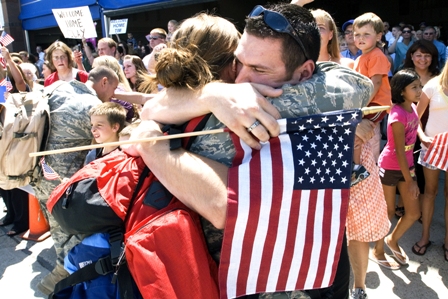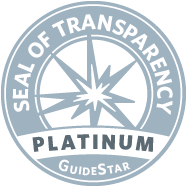Hiring to expand veterans' services: Q&A with W.
Scott Gould, deputy secretary of Veterans Affairs
Interview by Ed O'Keefe
Washington Post Staff Writer
Tuesday, February 23, 2010;
B03
The Department of Veterans Affairs plans to hire roughly 105,000
employees in the next two years as part of the Obama administration's
expansion of benefits and services for veterans. Deputy Secretary W.
Scott Gould talked Monday about the hiring plans and other
department operations.
Q Who exactly are you looking for? Just doctors and nurses or claims
folks?
We're looking for medical professionals: Doctors, nurses top our lists.
Also claims processors. We're putting a big emphasis on clearing through
the backlog. Obviously, in addition to new technology and better
processes, we need good people to make those judgments.
How's this going to work? Besides a $12.4 million television ad
campaign, are there recruitment fairs at medical schools or some other
outreach?
We're airing on the Olympics; we're on all the major award shows. We
think it's a brand-new way of getting out in front of folks and letting
them be aware of what the VA has to offer. In addition to that, we're
looking to streamline our internal processes. So when someone calls,
they express an interest, they're going to find a more customer-friendly
VA.
Pretend I'm a med student who's plotting my post-school plans. What
would be the sales pitch?
Number one, the mission. Taking care of our veterans, taking care of the
people who have protected our freedom over time. I can't think of a
better synergy and overlap between a physician who wants to do something
for their community and heartfelt service to veterans. The second would
be leadership that gets it. Leadership that's prepared to invest in
them and develop their careers over time. And the third thing I'd say is
that we're growing.
Let's talk salary and benefits: Is it comparable if one goes to the
VA vs. a private hospital?
Surprisingly, yes. Under Title
38 [regarding veterans' benefits], we have the capacity to pay up
to $400,000 a year for a physician. . . . We're not as high-paying as
the highest-paying, but we think we have very respectable compensation.
In addition, you don't have to buy insurance, and you can practice
medicine anywhere in the country, as long as you have one state where
you passed your certification. So it's a flexible career; it's one where
you can move without having to undergo the burden of repeated exams and
licensure.
One of the big concerns generally with federal hiring, but also at VA, is backlog. What
guarantee can you give an applicant right now that if they apply they
will know within a reasonable amount of time? What is a reasonable
amount of time?
Our goal is 60 days. We're over 100 right now. This is a tremendous
misalignment between our aspiration, what we think needs to be done to
match the best in the private sector and the best in the private sector
-- IBM, a company that can do it in 60 days. We're at 102. We have to do
a lot of training.
At the end of the day, the ability to hire someone and do it well is an
intensely personal management-supervisor-level decision. Am I going to
get Scott Gould and hire him, and why? How do you identify what those
job requirements are? That's a skill that we have to give and raise up
for a lot of our managers. We have a lot of middle-level managers who
have to learn how to do this in a different way.
What is being done here at VA to recruit and hire veterans? We hear
from readers that it's not being done enough, but you hear from
civilians who say they're being given too much preference.
And what's that balance, yes. As you know, the president has announced
the veterans hiring initiative. That entire initiative is
moving forward under the premise, especially here at VA, that veterans
do better at serving veterans than non-veterans.
We want a mix of veterans present in that VA workforce that have had the
common experience, that have served their country in that way. That
doesn't mean that non-veterans can't do that just as well, but there is a
sense that, in the veteran community -- that experiences at a young age
twice the unemployment rate as some in our economy -- that this is
something that the country can and should do as part of an economic plan
to help them.
Have you ever collected VA benefits or gone to a VA medical center
yourself?
I got my master's and doctoral degrees paid for by the VA. And my dad
was given care in a VA hospital for 11 years. He entered an Alzheimer's
center when he was in his late 50s and spent 11 years there until his
death.
You're married to Michele
Flournoy, undersecretary of defense for policy. What's it like
being one of Washington's power couples, at least in title and rank?
Thank you for that qualifier. We tend to ignore that as much as
possible. It's wonderful from a personal side to see her fulfilled and
doing what she's prepared all her life to do. It's just a wonderful
thing. I think she feels the same way about me. Very early in the
morning, two cars pull up to the house, and we each say our goodbyes and
make sure the lunchboxes are packed and the kids are out the door.
We tend to come home [about] 7 or 8 at night. Both my secretary and
[Defense] Secretary [Robert
M.] Gates have been great about trying to approach this in a way
that allows us to spend time with our family and still get the job done.
How do you defrag from it all? Do you bring work home and talk about
it, or do you try to find something other than work to talk about it?
You know, probably one of the most interesting conversations in my day
is right after dinner, when the kids are all assigned to get their
homework done, the TV is off and I get about 20 minutes with Michele
over dessert and coffee. We talk about the day's events, and about
leadership and about politics, and it's a sense of kind of sharing how
to navigate in Washington and how to do good and how to fulfill your
dream with a partner who each day is learning as much as I am in my job
about how to do that.
 A welcoming home for our Troops.
A welcoming home for our Troops.

